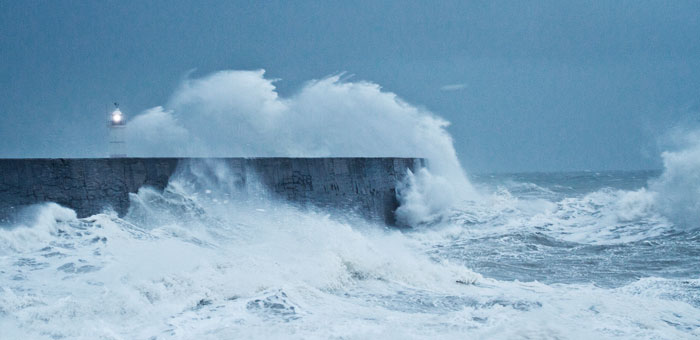
Last week a “freak” storm wreaked massive damage along the east coast of the UK. Are erratic and unpredictable weather events increasingly what we should expect?
A few weeks ago Typhoon Haiyan, one of the worst environmental catastrophes ever, struck in the Philippines just as the latest round of UN-sponsored climate change talks were getting underway in Warsaw. The timing ought to have given an added sense of urgency to negotiations. How did the international community respond?
The sheer magnitude of the super-typhoon which devastated parts of the Philippines was unprecedented. But in the end the Warsaw talks were characterized more by discord and acrimony than a concerted effort to achieve a breakthrough. As UN’s leading climate official Christina Figueres declared: “we are witnessing ever more frequent, extreme weather events, and the poor and vulnerable are already paying the price.”
So how has the UK Government been squaring up to the challenge? Cameron recently fiercely defended action on climate change when he challenged those who said there was no evidence of a link to Typhoon Haiyan. But looking a little closer to home, the picture is one of mixed messages.
As predicted, Cameron succumbed to pressure to curb energy bills by rolling back on green levies and to cancelling next year’s planned fuel duty increase in the Autumn Statement. These must be seen as part of a knee jerk reaction in response to Labour raising the stakes in the cost of living debate.
The cancellation of next year’s fuel duty increase was one of the biggest single measures in the Autumn Statement. RAC Foundation estimates that 16.7 million people commute by car, and for the poorest 10% the cost of running a car amounts to a quarter of their disposable income. However, this overlooks the fact that a quarter of all households – and nearly half of workless households – have no access to a car.
Surely a more progressive measure would be to incentivize commuting by bus. Such an incentive would provide much needed support for Britain’s workforce and for the wider economy, bus commuters generate £64 billion in economic output. Crucially this measure would reduce carbon emissions from road transport, and would also reduce congestion which cost the UK economy at least £11 billion a year.
The most recent report by Committee on Climate Change concludes that whilst progress in the UK has been made, we are not currently on track to meet our third and fourth carbon budgets. However, the need for more concerted action on carbon reduction becomes greater each year.
The International Energy Association forecasts that energy related CO2 emissions are set to rise by 20% to 2035, meaning that we are currently on track for a long term temperature increase of 3.6 degrees – far in excess of 2 degrees.
Stern famously argued that mitigation must be seen as an investment, and the benefits of strong early action significantly outweigh the costs. It is likely that over the next few years we will see an increased occurrence of even more extreme weather events, which will bring this reality into ever sharper focus.
Photo: Paul Appleton
About the Author
This post was written by Claire Haigh. Founder & CEO of Greener Vision & Executive Director of the Transport Knowledge Hub. Claire was previously CEO of Greener Transport Solutions (2021-2022) and CEO of Greener Journeys (2009-2020).
